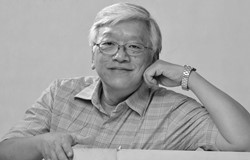Social Watch news
Published on Wed, 2020-04-22 16:31
The Financial Accountability, Transparency and Integrity (FACTI) Panel, a joint General Assembly and ECOSOC initiative established in early 2020, will hold a virtual consultation with Member States on 24 April. The Panel has made available an overview of existing mechanisms and a concept note of their work. Among their priorities will be addressing financial secrecy.
|
Published on Tue, 2020-04-21 14:46
The global impact of the COVID-19 crisis and the responses have raised a wide range of human rights concerns.
UN human rights experts and the UN High Commissioner have spoken out, collectively and individually, issuing statements covering the full range of civic, political, economic and cultural rights.
|
Published on Mon, 2020-04-20 15:50
The UN General Assembly (UNGA) Member States have adopted by consensus a Resolution (A/RES/74/270) on COVID-19 that calls for “international cooperation” and “multilateralism”. The resolution recognizes the "unprecedented effects of the pandemic, including the severe disruption to societies and economies, as well as to global travel and commerce, and the devastating impact on the livelihood of people". It calls for "intensified international cooperation to contain, mitigate and defeat the pandemic, including by exchanging information, scientific knowledge and best practices”. It stresses "the need for full respect for human rights" and states that "there is no place for any form of discrimination, racism and xenophobia in the response to the pandemic".
|
Published on Mon, 2020-04-13 14:19
At a briefing on COVID-19, Secretary-General Antonio Guterres stated: “We are in an unprecedented situation and the normal rules no longer apply. We cannot resort to the usual tools in such unusual times.”
The Secretary-General’s call for a global ceasefire in light of COVID-19 has already garnered significant support including from Member States and CSOs, receiving over 2 million signatures. Learn more and sign the petition here.
|
Published on Sun, 2020-04-12 00:00
Civil Society Organizations and Research Center in Lebanon released a statement in reaction to the Government response to the Covid 19 crisis.
The suggestions and recommendations stem from the need to take a comprehensive approach to the crisis with its health, economic and social dimensions, with human rights and dignity at the center of the approach taken, and learn from this crisis in order to develop plans that strengthen public health care systems, free education and public access to social security.
|
Published on Sun, 2020-04-05 12:20
The potential and challenges of the digital economy are emerging steadily on the UN agenda. The UN General Assembly’s Committee on Social, Humanitarian, and Cultural Issues (Third Committee) closed its 74th session in November 2019 adopting over 60 resolutions on a wide range of subjects, only one of which (A/C.3/74/L.11) addressed digital technologies.
The Committee heard presentations from a variety of Independent Experts and Special Rapporteurs, two of whom addressed in their reports the human rights implications of emerging digital technologies. The Special Rapporteur on Extreme Poverty and Human Rights, Phillip Alston, focused his report on the digital welfare state. The Special Rapporteur on the Protection of the Right to Freedom of Expression, David Kaye, addressed online hate speech.
|
Published on Mon, 2020-03-30 14:36
In addition to the health aspects of the virus, the global coronavirus crisis also has financial, socio-economic and developmental consequences. For this reason, a large number of policy measures have been announced by governments and international organizations, on the one hand to contain the pandemic, on the other to mitigate the economic consequences.
These measures contain for example fiscal stimulus and aid packages of various shapes and sizes, intended to cushion the serious economic and social consequences of the coronavirus outbreak worldwide. The main target groups of planned loans and cash injections are the healthcare system, as well as larger banks and companies. However, some strategies are also aimed at small and medium-sized companies as well as groups of individuals, their savings, private pensions and other private assets.
|
Published on Sat, 2020-03-28 00:00
By Roberto Bissio*
The message could not have been clearer: "There is a very real threat of a rapidly moving, highly lethal pandemic of a respiratory pathogen killing 50 to 80 million people and wiping out nearly 5% of the world’s economy. A global pandemic on that scale would be catastrophic, creating widespread havoc, instability and insecurity.”
This prediction was published in September 2019, several months before the identification of the first Covid-19 patient, by Gro Harlem Bruntland, former Prime Minister of Norway and former Director-General of the World Health Organization (WHO), and by Elhadj As Sy, Secretary General of the International Red Cross and Red Crescent, as co-chairs of the the Global Preparedness Monitoring Board. The Board's report entitled A World at Risk was conclusive: "The world is not prepared."
|
Published on Fri, 2020-03-27 10:37
The report by Ricardo Tranjan examines the financial situation of the 3.4 million households in Canada who rent and whose primary source of income is wages and salaries or self-employment income. Everyone will be eventually touched by the economic impacts of the COVID-19 pandemic, but rent is due soon. Specifically, it addresses the following question: How many weeks or months can renters go without employment income before running out of savings?
The short answer is that almost half of them have less than a month’s worth of savings; one-third have two weeks or less.
|
SUSCRIBE TO OUR NEWSLETTER
Submit

|






